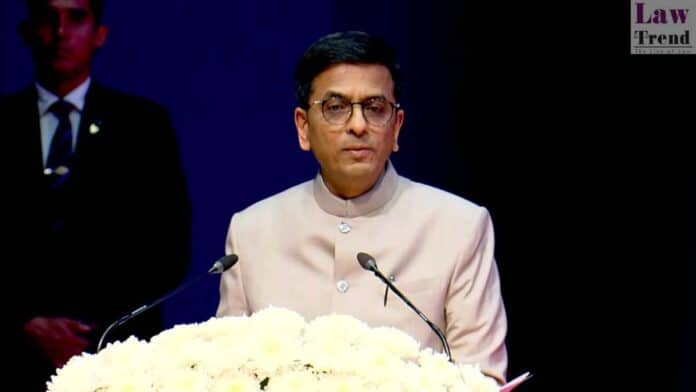Former Chief Justice of India, Dr. DY Chandrachud, has spoken candidly about his family’s ongoing struggle to find a residence in Delhi that accommodates the special needs of his two differently-abled daughters, even as he prepares to vacate his official bungalow by April 30.
“We have two beautiful daughters, who have needs, but it has been difficult to find a house to cater to their needs. Every public space is the same. For too long, our society has kept the disabled under the curtain of ignorance and suppression,” Justice Chandrachud said while addressing a panel discussion titled “Disability Rights & Beyond”, hosted by Mission Accessibility.
Justice Chandrachud and his wife, Kalpana Das, adopted their daughters Priyanka and Mahi, both of whom live with nemaline myopathy, a rare genetic neuromuscular disorder. Sharing personal anecdotes, the former CJI reflected on the challenges of parenting while navigating societal apathy toward disability.
“Initially they were just bones and flesh. The mother had completely ignored them thinking they were a lost cause,” he said, recounting the early days of adoption during his tenure at the Allahabad High Court. Describing the emotionally taxing medical treatments his daughters underwent, he remembered a poignant moment when the elder one said, “I don’t want my sister to go through this.”
Despite the hardships, he credited his daughters with transforming his worldview—bringing compassion, veganism, and environmental awareness into their lives.
Reflecting on his years on the Bench, Justice Chandrachud emphasized the profound impact of judicial decisions. “As a judge, you cannot imagine the impact of your judgments. There are ten reasons to deny relief, but we need just one good reason to give it,” he remarked.
He recalled how Advocate Rahul Bajaj, now a co-founder of Mission Accessibility and a Rhodes Scholar, had once written to him expressing a desire to work under him. “I was wondering why someone would leave a Rhodes Scholarship to work with me. But my experience with him was truly enlightening.”
Justice Chandrachud also spotlighted the initiative to open Mitti Café within the Supreme Court complex—an inclusive workplace for persons with disabilities. “We wanted to show that disability is not a barrier. They are capable of leading a dignified existence—as service providers, not just service receivers,” he said. The model was later replicated at the Rashtrapati Bhavan.
He emphasized the urgent need to prioritise disability-related matters in courts. “You need a bench with empathy. These are not like IBC matters. Disability law cuts across the societal gamut.”
Citing the reversal of an earlier Supreme Court ruling that had disqualified blind persons from becoming judges, he remarked, “What began as an isolated instance is now becoming a movement. Persons with disability are entitled as a matter of right, not as a matter of concession.”
Calling for reforms in the Rights of Persons with Disabilities (RPWD) Act, Justice Chandrachud pointed out the shift of employment from the public to the private sector. He advocated for amendments to incorporate sanctions, encourage voluntary compliance, and introduce time-bound implementation.
On mental health, he praised the Mental Healthcare Act for decriminalising suicide attempts, while noting increasing stress in urban work cultures—particularly in law firms. “By saying we should have a 70-hour work week, you are not doing any service to a labour surplus economy.”
He urged the government to engage lawyers with disabilities in mainstream legal work, beyond pro bono, and called for mandatory accessibility audits in public spaces. He also advocated for the inclusion of sign language instruction in school curricula.




